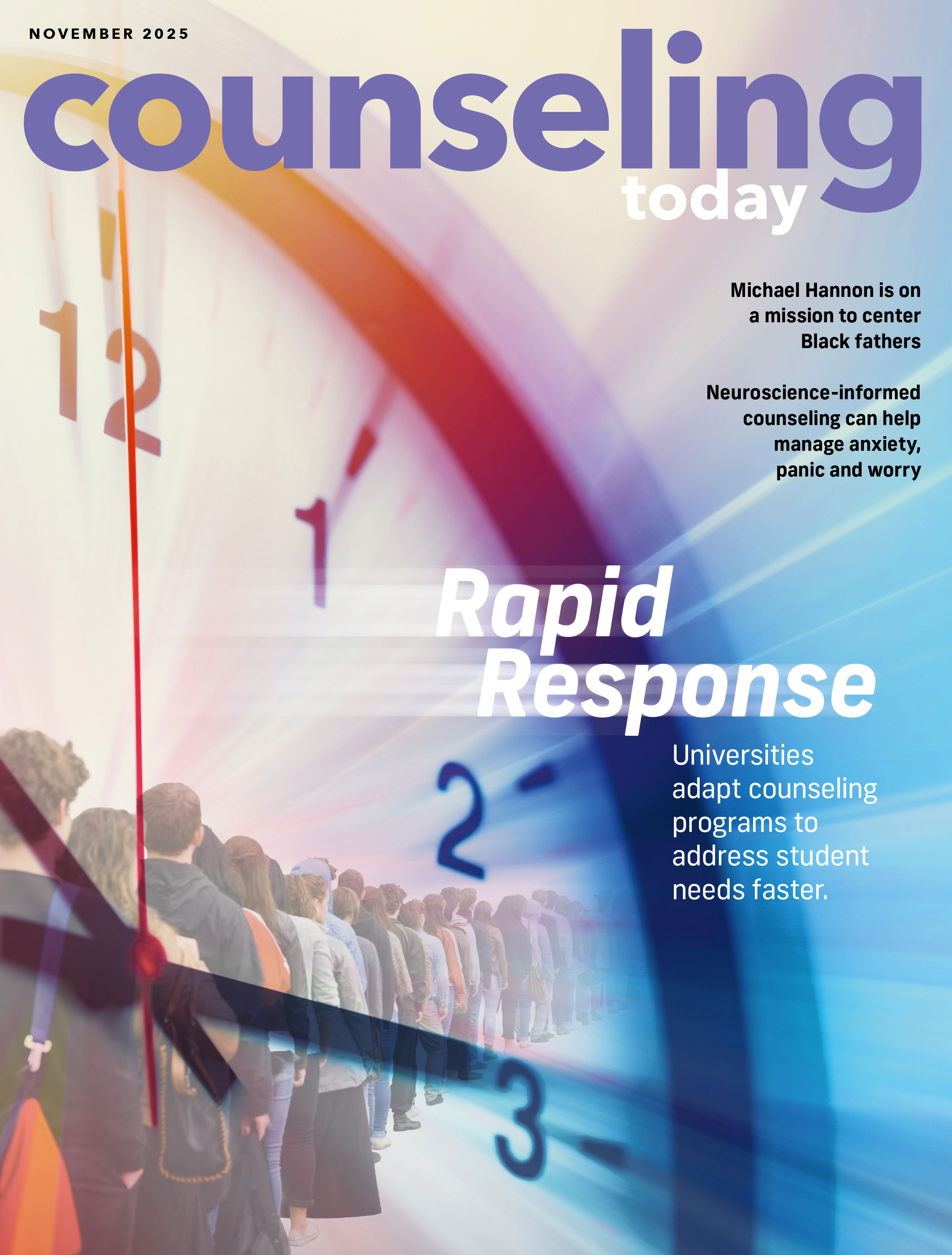Explore Counseling Today Articles
-
 Taking a culturally responsive approach to suicide assessmentSeptember 2023
Taking a culturally responsive approach to suicide assessmentSeptember 2023The recent rise in suicide rates among marginalized communities highlights the need for counselors to use culturally responsive practices when assessing suicide risk.
-
 Assess more, judge lessSeptember 2023 |By Caitlin C. Regan
Assess more, judge lessSeptember 2023 |By Caitlin C. ReganTo decrease the stigma around mental health in society, we must confront stigmatizing and biased thinking in the clinical world.
-
 From the President: Building new partnershipsSeptember 2023
From the President: Building new partnershipsSeptember 2023The ACA president emphasizes the need to build mutually beneficial relationships with other organizations that promote mental health, and he provides an update on the Governing Council meeting happening this month.
-
 Voice of Experience: Disorders with the potential for dangerous outcomesAugust 2023 |By Gregory K. Moffatt
Voice of Experience: Disorders with the potential for dangerous outcomesAugust 2023 |By Gregory K. MoffattWhen working with people with disorders that are associated with more dangerous behaviors, counselors must be prepared to assess the client’s risk of violence to themselves and others.
-
 Behind the Book: Q&A with Danica G. HaysAugust 2023 |By Danica G. Hays
Behind the Book: Q&A with Danica G. HaysAugust 2023 |By Danica G. HaysDanica G. Hays, author of Assessment in Counseling, discusses what’s new in the recently published seventh edition and how proper assessment of clients can help strengthen the therapeutic alliance.
-
 Cultivating patience in counselorsAugust 2023
Cultivating patience in counselorsAugust 2023A desire for change can sometimes cause counselors and clients to overlook the importance of building a sense of safety first.
-
 Making schools more inclusive for LGBTQ+ studentsAugust 2023 |By Stephanie Opiela
Making schools more inclusive for LGBTQ+ studentsAugust 2023 |By Stephanie OpielaBy creating an inclusive and trauma-informed environment, schools can serve as a source of support and safety for LGBTQ+ students.
-
 A mental wellness program for law enforcementAugust 2023
A mental wellness program for law enforcementAugust 2023Using a mental health program designed for law enforcement may help remove barriers that often prevent officers from getting the mental health care they need.
-
 Advocacy Update: Becoming your own advocateAugust 2023
Advocacy Update: Becoming your own advocateAugust 2023ACA's aims to empower its members by equipping them with the tools needed to successfully advocate on the federal, state and local levels and let their voices be heard.
-
 Reducing the occupational hazard of sexual boundary violationsAugust 2023
Reducing the occupational hazard of sexual boundary violationsAugust 2023Counselors can decrease their risk for sexual boundary violations, but first they have to talk about it.
Search CT Articles
Filter CT Articles
Current Issue
Sign Up for Updates
Keep up to date on the latest in counseling practice. Sign up to receive email updates from Counseling Today.


